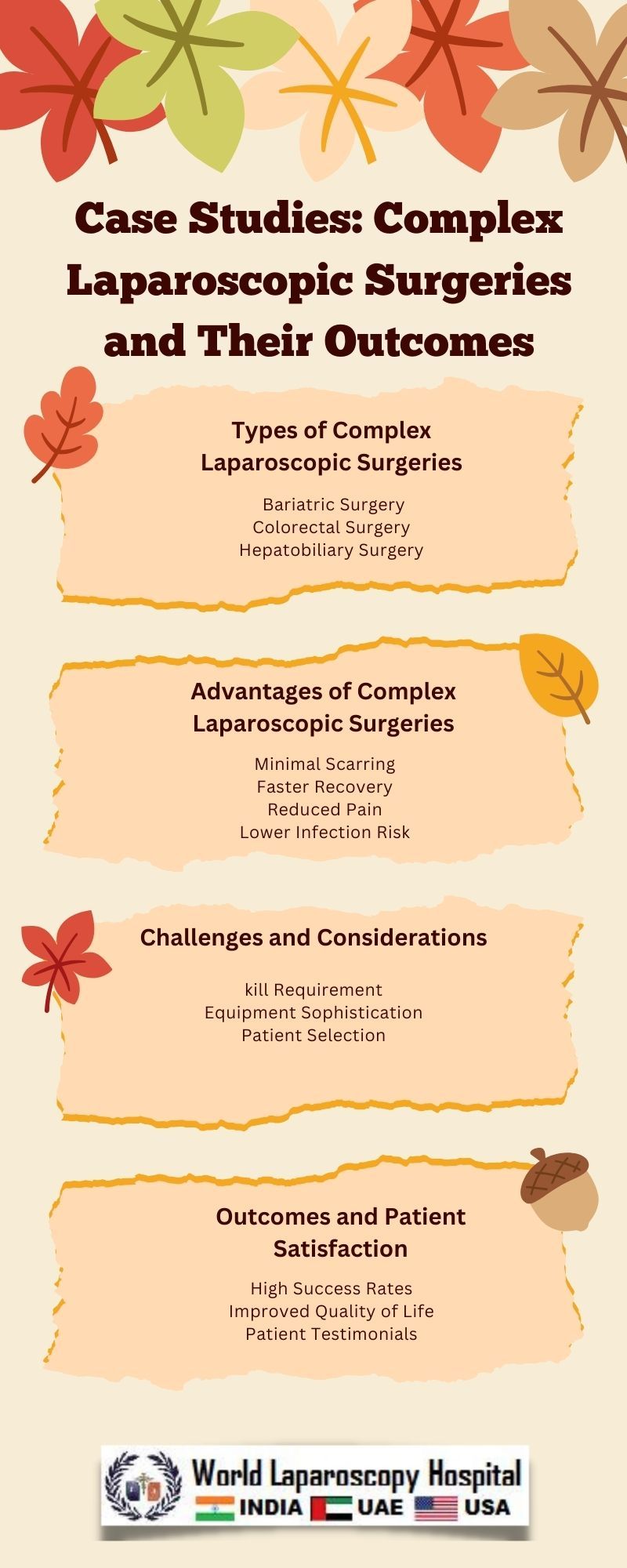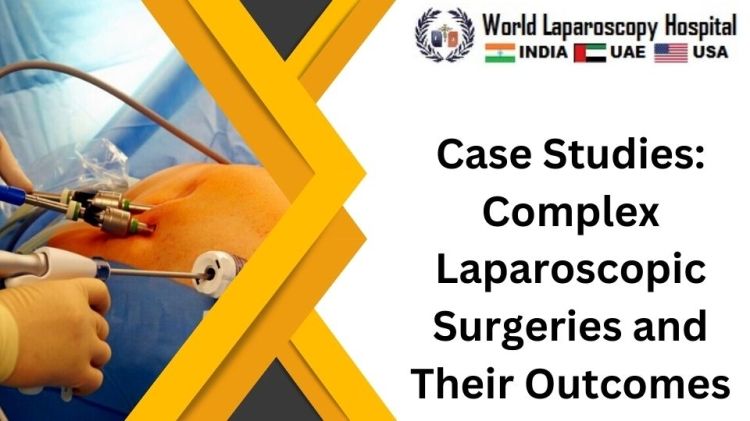Case Studies: Complex Laparoscopic Surgeries and Their Outcomes
Introduction
In the ever-evolving realm of medical science, the field of laparoscopic surgery has emerged as a beacon of precision and innovation. This article embarks on a comprehensive exploration of complex laparoscopic surgeries, weaving a narrative through insightful case studies that illuminate the intricacies of these procedures and shed light on their remarkable outcomes.

The Evolution of Laparoscopic Surgery
To truly appreciate the significance of complex laparoscopic surgeries, it's imperative to understand the evolution of this groundbreaking surgical technique. Initially introduced as a minimally invasive alternative to traditional open surgeries, laparoscopy has since undergone transformative advancements. The shift from diagnostic to therapeutic procedures has expanded the scope of laparoscopic surgery, allowing surgeons to tackle intricate cases with unparalleled precision.
The Challenges of Complex Laparoscopic Surgeries
The very nature of complex laparoscopic surgeries presents surgeons with unique challenges. From navigating densely populated anatomical landscapes to addressing complications in real-time, these procedures demand a high level of skill, experience, and adaptability. Case studies serve as windows into the dynamic challenges encountered during these surgeries, providing valuable insights into the decision-making processes that unfold in the operating room.
Overcoming the Odds in Hepatic Resection
The first case study delves into a complex laparoscopic hepatic resection, where the surgical team faced the formidable task of removing a sizable hepatic lesion. From meticulous preoperative planning to the intricacies of intraoperative navigation, the case study unveils the strategic decisions that led to a successful outcome. Patient recovery and long-term follow-up underscore the effectiveness of laparoscopic approaches in challenging hepatic cases.
Tackling Gastrointestinal Challenges with Laparoscopy
A second case study focuses on the application of laparoscopic techniques in addressing complex gastrointestinal issues. The narrative unfolds as the surgical team navigates intricate anatomical structures to resolve a challenging case of Crohn's disease. The study highlights the role of laparoscopy in reducing postoperative complications, minimizing scarring, and expediting patient recovery in the context of gastrointestinal surgeries.
Innovations in Laparoscopic Technology
An integral aspect of successful complex laparoscopic surgeries lies in the continuous evolution of surgical technology. From robotic-assisted procedures to advanced imaging systems, innovations in laparoscopic technology play a pivotal role in enhancing surgical precision and expanding the scope of what is surgically achievable. This section explores the latest technological advancements that contribute to the success of complex laparoscopic surgeries.
The Human Element: Surgeon Expertise and Team Dynamics
Behind every successful complex laparoscopic surgery is a skilled surgical team led by an experienced surgeon. This section delves into the critical role of surgeon expertise and the dynamics of the surgical team in achieving positive outcomes. From communication strategies in the operating room to the importance of continuous training, the human element emerges as a key factor in the success of these intricate procedures.
Challenges and Controversies in Laparoscopic Surgery
While the benefits of laparoscopic surgery are substantial, it is essential to acknowledge and address the existing challenges and controversies. This section explores issues such as learning curves for surgeons, potential complications, and debates surrounding the cost-effectiveness of laparoscopic procedures. A balanced perspective on these aspects contributes to a holistic understanding of the current landscape of laparoscopic surgery.
Future Directions: Laparoscopic Surgery on the Horizon
As we peer into the future, the article concludes by examining the promising avenues and emerging trends in laparoscopic surgery. From advancements in virtual reality simulation for training to the integration of artificial intelligence in surgical decision-making, the horizon is rich with possibilities that will further refine the landscape of complex laparoscopic surgeries.
Conclusion
In the realm of complex laparoscopic surgeries, each case study is a testament to the ingenuity of surgical teams and the transformative power of precision medicine. As technology continues to advance and surgical expertise evolves, the horizons of laparoscopic surgery expand, offering new hope and possibilities for patients facing intricate medical challenges. This article serves as a comprehensive journey through the past, present, and future of complex laparoscopic surgeries, celebrating the triumphs and illuminating the path forward in the pursuit of medical excellence.






